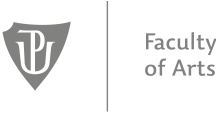e-rhizome, 2020 (vol. 2), issue 1
Primitive Theories of Religion: Evolutionism after Evans-Pritchard
Konrad Talmont-Kaminski
e-rhizome 2020, 2(1):1-18 | DOI: 10.5507/rh.2020.001 
In 1965 Evans-Pritchard published what is considered the ultimate critique of evolutionist theories of religion. More than five decades later, evolutionary approaches to the study of religion are thriving. Is this because the lessons contained in Theories of Primitive Religion have been forgotten? Or is it that the modern approaches have managed to learn from the errors Evans-Pritchard catalogued? The situation is somewhat more complex. It would be facile to dismiss the most fundamental criticisms of evolutionism made by Evans-Pritchard on the grounds that the ‘evolutionary’ theories he focused upon were based much more on Comte’s...
The Doctor-Comatose Patient Relationship and Decision-Making in the Intensive Care Unit
Marek Petrů
e-rhizome 2020, 2(1):19-31 | DOI: 10.5507/rh.2020.002 
Cognitive science has not yet revealed the mystery of the mind, the principle and the origin of consciousness. We cannot determine with certainty whether a particular being has consciousness and is someone, or lacks it and is something. The doctor at the patient's bedside in the neurological intensive care unit has to, for example, make decisions even in this situation of uncertainty. In this study, using the example of clinical diagnostics and therapy of quantitative disorders of consciousness, the author examines the extent to which this ignorance represents a barrier preventing the neurologist from taking on the unambiguous decision about the therapy....
Natural Knowledge: An Analysis of Plantinga's Reformed Epistemology in Light of Contemporary Cognitive Science of Religion
Dominik Whittaker
e-rhizome 2020, 2(1):32-52 | DOI: 10.5507/rh.2020.003 
The foundation of Alvin Plantinga's reformed epistemology is the idea that beliefs which are naturally, non-inferentially and immediately produced by a cognitive faculty are properly basic. A properly basic belief is one that ought to be held as true, even if there is no evidence or argument to confirm it. Such a belief should only be rejected once sufficient evidence or a sound argument can be found to disprove it. Plantinga's most important claim is that belief in God is one such belief, produced by a cognitive faculty which he calls the sensus divinitatis. In this paper I will first examine three major accounts of the origin of religious beliefs...
Art in the Cascade of Brain Areas
Petr Adámek, Dominika Grygarová
e-rhizome 2020, 2(1):53-63 | DOI: 10.5507/rh.2020.004 
Over the last three decades, we have witnessed the gradual penetration of modern and often experimental technologies into the humanities, which often could only prove their conclusions within the framework of logic and logical derivation. This trend can also be observed in fields such as aesthetics and art history. Experimental devices currently help us understand and describe events in our brain that contribute, for example, to why some works of art appeal to us and others do not. They help us to describe the techniques used by the artist to change our perception of his work and thus evoke certain emotions in us. This article should provide the reader...
The elaboration of the volume was made available thanks to the financial support granted by the Ministry of Education, Youth and Sports of the Czech Republic in 2020 within the framework of the Institutional Development Plan of the Faculty of Arts of the Palacký University Olomouc.


